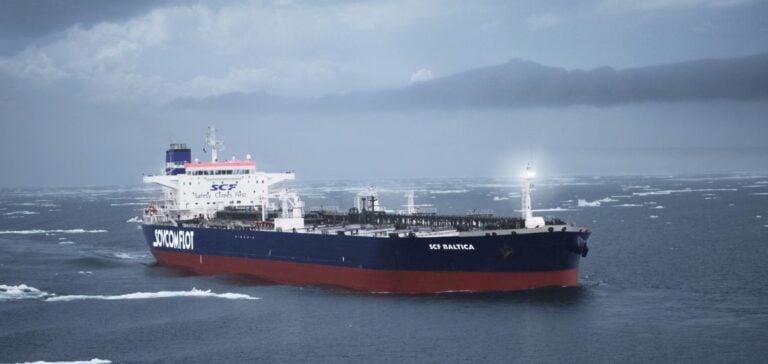Exports of Russian crude oil by tankers operating outside the G7 framework fell by over 10% in July.
This decline is directly linked to the intensification of Western sanctions, which specifically target vessels and companies involved in the transport of Russian oil.
Data from S&P Global Commodities at Sea and Maritime Intelligence Risk Suite show that 2.64 million barrels per day were transported in July by unregistered tankers owned or operated by companies based in G7 countries, the European Union (EU), Australia, Switzerland and Norway, and not insured by Western protection and indemnity clubs.
This figure is down on the 2.94 million barrels per day recorded in June.
Impact of sanctions on tanker operations
Western authorities recently added more than two dozen tankers to their blacklist for non-compliance with price caps, which could affect their operations.
The EU sanctions 17 tankers that have transported 22.4 million barrels of Russian oil since the beginning of the year.
Since June 24, just one of these tankers has delivered 264,000 barrels of Russian oil products to Turkey.
On July 18, the British government adds 11 Suezmax, Aframax, Long Range 2 and Medium Range vessels to the sanctions list, while announcing an agreement with over 40 European countries and the EU to combat “illegitimate” tankers carrying Russian oil to finance the war in Ukraine.
Impact on Russian exports
Sanctioning vessels could have a more powerful effect than sanctioning vessel owners, who can transfer ownership to non-sanctioned companies.
However, according to analysts, the drop in Russian crude oil exports could also be due to better compliance with OPEC+ production cuts and a recovery in domestic refining.
Nikesh Shukla, tanker analyst at S&P Global Commodity Insights, argues that sanctioned vessels could soon resume operations, as long as major buyers such as India and China continue to receive Russian oil.
“For a sovereign power, [mettre en place des installations d’assurance] won’t be difficult,” he says.
Changes in non-G7 tanker market share
Although their transport volume is declining, the share of non-G7 tankers in Russian oil exports is rising slightly, from 82.5% in June to 82.7% in July.
This share has risen for five consecutive months, reaching a new high since the introduction of the price cap in December 2022.
Overall, tankers operated by Russian companies loaded 10.6 million barrels in July, compared with almost 17 million barrels in June, as many Sovcomflot vessels were sanctioned.
Hong Kong operators carried 14.7 million barrels last month, surpassing mainland Chinese operators for the first time.
Outlook for Russian exports to China and India
Exports from Russia to China are also showing interesting momentum, with Hong Kong and mainland Chinese tanker operations accounting for almost 29% of Russian oil exports.
Exports of oil from Eastern Siberia-Pacific Ocean rose to 27.8 million barrels in July, the majority being transported by Hong Kong and mainland Chinese operators to Chinese refineries.
By contrast, Russian oil exports to India fell to a five-month low of 47.8 million barrels in July, with 81% transported by tankers operating outside the price cap, the same share as in June.
Indian demand is weakened by the planned maintenance of four refineries, reducing their combined crude oil processing capacity to 546,000 barrels per day.
The complexity and implications of Western sanctions on Russian crude oil trade raise important questions about the effectiveness of these measures and their long-term impact on the global energy market.






















